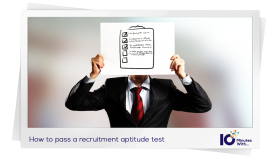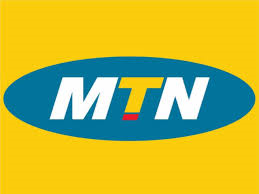10 Popular Job Aptitude Test Formats Used by Companies in Nigeria

Uchechi Moses
Uchechi is a Business Development Associate with JarusHub
Almost all companies organise aptitude tests when recruiting for job positions, especially at the entry-level. These tests are designed to assess candidates for various skills and capacities, such as behavioural skills, language skills, problem solving skills, critical reasoning capacity, and many others, with a view to weeding out unfit candidates. Typically, the tests are administered under exam conditions. In Nigeria, companies like KPMG, PwC, McKinsey and Company, Sahara Group, FMCG, manufacturing, service, insurance, banks, oil and gas companies etc. organise aptitude tests for their entry level job candidates.
So, if you’re looking to take up a graduate position in a company, bear in mind that you will most likely have to write an aptitude test, which is usually in a multiple-choice format. Your performance during this test will determine whether you will be invited for the next phase of the recruitment process, which is usually the interview. So, it is crucial that you pass this test to have any chances of getting that desired job. Tips on how to pass aptitude tests are listed here. In this article, we chronicle popular aptitude tests used by companies in Nigeria.
1. SHL: This format of test published by CEB SHL provides psychometric ability tests, including numerical, verbal, diagrammatic and inductive reasoning tests, commonly used for candidate screening and at assessment centres. As well as the overall score, speed, accuracy and caution are assessed during the course of the exam, and provided with the final test score. The most commonly used SHL aptitude tests by companies are the SHL Verify range of tests, with the most common types including numerical, verbal, inductive, mechanical, deductive reasoning and situational judgement tests.
Examples include Accenture Nigeria and PwC Nigeria. 
2. PLI: A 12-minute test, comprises of 50 questions. The Predictive Index Learning Indicator (PI Learning Indicator), formerly known as Professional Learning Indicator, is an effective tool used to measure one’s cognitive ability, and capacity to quickly learn and adapt on the job. According to Predictive Index (company that organises PLI), a person’s cognitive abilities are a direct indicator of an individual’s on-the-job performance and ability to acquire job knowledge. Testers are looking to see if you can learn the job quickly. The test measures your ability to do the following: Understand complex ideas, adapt properly to a new environment, learn from experience, reasoning and overcome obstacles. Format includes: Numerical Reasoning (Number series and math word problems), Verbal Reasoning (vocabularies, analogies and formal logic) and Non-verbal reasoning (spatial and inductive reasoning). Examples of firms using PLI for recruitment purposes are Maersk Nigeria and GTB.
3. TALENTQ: Established in 2006 by Roger Holdsworth (also co-founder of SHL), the firm designs and delivers online psychometric assessments for various clients. The tests are ‘adaptive’, denoting that candidates are presented with questions that are selected on the basis of their performance on previous questions. This means you are likely to receive a unique combination of questions thereby reducing the risk of candidates sharing questions and answers. TalentQ tests cuts across the following:
Numerical: Used to assess a taker’s ability to analyse, grasp and interpret data using basic arithmetic and calculations expected in the workplace. Usually presented in the form of graphs, tables and diagrams. They include 12 questions, although there is no overall time limit. Test takers are expected to spend 90 seconds on the first question in each table, and 75 seconds for the rest. On average, the test take 10 minutes.
Verbal: These are used to determine the individual’s to read, understand and interpret written information. As with the numerical, it has 12 questions based on the provided passage of text. As with the numerical, no overall time limit, but test takers are expected to spend 75 seconds on the first question and 60 seconds for the rest. Average time is 8 minutes.
Diagrammatic: This comprises 8 tables of information, each possessing 5 or 6 rows of data. Used to evaluate an individual’s aptness to analyse and draw conclusions from diagrammatically presented data. This part of TalentQ requires candidates to identify similarities and differences within the patterns of data provided. Candidates are expected to spend a minute on the images with 6 rows and 50 seconds for that with 5 rows. Average time is 6 minutes. Others include Situational Judgement and Personality Tests.
Examples of companies using TalentQ include Citibank and Standard Chartered Bank.
4. GMAT: One of the widely used test format in recruitment processes. GMAT comprises of numerical, verbal, and abstract reasoning. It is also used in business school admissions. It consists of:
Numerical: Candidates are tested on basic mathematics compromising of word problems, arithmetic, data sufficiency, geometry, ratios, percentages, data interpretation etc.
Verbal: This comprises of sentence correction, synonyms, antonyms, reading comprehension etc.
Critical Reasoning: Argument construction, argument evaluation, evaluating a plan of action. Other test features in GMAT include: Logical reasoning, graphical interpretation and abstract reasoning. Tests are administered by various firms for recruitment based on their criteria. Majorly used by different companies across various industries. Notable example is KPMG Nigeria and Deloitte Nigeria.
5. KENEXA: An IBM company that provides recruitment, retention, and talent management solutions for professional companies. As a result, Kenexa works with many different organizations, providing them with skills tests to be used as part of their hiring processes. These tests evaluate applicants’ skills for a wide range of positions, such as those in the financial, industrial, technical, clerical, software, healthcare etc. Kenexa also offers employers three aptitude tests with which to assess applicants’ cognitive abilities: numerical, verbal, and logical reasoning. Furthermore, they provide personality and behavioural tests to help recruiters determine if a candidate’s disposition matches the requirements of the position.
The test comprises of:
Numerical: This is part of the Kenexa Infinity Series. It evaluate candidate’s ability to interpret and analyse numerical data, understand profit margins, and work out percentages. This test is 20 minutes long and contains 20 different questions from a large bank of possibilities.
Verbal: Also part of the Kenexa Infinity Series. It assesses one’s ability to communicate with team members and customers. As with the numerical, the duration is 20 minutes and contains 24 different statements. Candidate must decide whether the information presented in each statement is true, false, or cannot be determined based on the information contained in the preceding paragraph.
Logical Reasoning: This assesses one’s ability to make correct conclusions and assumptions using the information presented in a sequence. When you take this test, you are presented with a series of different shapes. You must select the pattern missing from the sequence.
Behavioural and Personality: These are used to evaluate candidate’s behaviour in the workplace. Consists of statements about one’s personality and behaviour at work. With candidates required to rate each statement on a five-point scale from “strongly disagree” to “strongly agree”. Notable examples of firms using Kenexa are Unilever and Grant Thornton.
6. DRAGNET TESTS: Foremost recruitment firm that conducts employment (and also scholarship) aptitude tests for several organisations. As a graduate seeking employment in Nigeria, you are more likely to come across an invite for a test organised by Dragnet Solutions than any other recruitment firm. Test comprises of numerical, verbal, and abstract reasoning.
Numerical: This comes in a variety of format. A short scenario is presented to candidates, after which the question progressively get difficult. This assesses candidates’ ability to grasp and understand numbers, charts, analytical reports etc. According to Dragnet Solutions, the score obtained signifies the candidate’s ability to:
- Comprehend tables, charts and graphs.
- Make inferences from numerical data.
- Juxtapose contrasting numerical data
- Evaluate quantities to arrive at a correct judgment.
Verbal: Assesses a candidate’s aptness to quickly extract information from written sources and make an objective judgement on the basis of that information. The verbal reasoning tells employers on how a candidate will perform when working with complex written information such as correspondence, reports, research etc. Dragnet Solutions says score gotten on verbal reasoning displays a candidate’s ability to:
- To read and comprehend written passages of text.
- Understand individuals word meanings
- Evaluate competing statements.
- Deduce relevant information to arrive at a correct judgement.
Abstract Reasoning: This measures a candidate’s aptness to grasp and understanding concepts and ideas, both new and old. Test takers are presented with grid containing shapes and are required to choose the missing shape from five options. Abstract reasoning provides an indication of how an applicant will take on board new concepts or develop new ideas using existing information. Score denotes one’s ability to:
- Think divergently.
- Switch between concepts and levels of analysis
- Ability to innovate and solve problems.
- Taking a strategic perspective.
Dragnet Solutions organise tests for various firms, some of which include: EY Nigeria, Nigerian Stock Exchange, Olam Nigeria, MTN Nigeria, Pan Ocean, Dufil Prima Foods etc. 
7. PROBLEM SOLVING TEST (PST): A multiple choice test used by McKinsey and Company to better understand how you think than how you have memorised. It comprises 26 questions for 1 hour, to answer as many questions as possible. The test assesses candidate’s ability to solve business problems using deductive, inductive, and quantitative reasoning. Candidates will be presented with three scenarios based on actual McKinsey client cases (what consultants at McKinsey do daily). Information related to each scenario will be shown in text, tables, and exhibits. This information is presented in shaded areas and is distributed in sections throughout the scenario. The questions ask you to find the most appropriate answer to the problem as described using only the information presented. Candidates are advised to select one and only one answer to any question. No calculator or use of any electronic device is allowed during the test. Candidates are to perform calculations in the blank space of their question booklet. According to McKinsey, you don’t need to have a business background to write the PST, and the test is less of math and more of problem solving. From research, there are 6 most common types of questions in the PST: (1) Client Interpretation. (2) Reading Facts. (3) Fact-Based Conclusion. (4) Root Cause-Reason. (5) Word Problems and (6) Formulae.
The PST was developed by McKinsey and Company, and thus, it is only used by her.
8. SAVILLE: A major player in the psychometric test publishing market. Saville psychometric tests are known to be thoroughly researched before publication, and their personality questionnaires are amongst the most valid. Founded by Professor Peter Saville (a co-founder of SHL) in 2004. Formerly known as Saville Consulting, now known as Saville Assessment. Saville Assessment publishes numerous psychometric ability tests, assessing verbal, numerical, diagrammatic, abstract, error checking and mechanical aptitude. Depending on the tests used, each individual test could take between 6-24 minutes. Due to the origins of the company and its founder, Saville psychometric tests may appear to some candidates as similar to SHL tests. The aptitude tests you are likely to encounter through Saville Assessment are:
- Numerical aptitude: Candidates’ numerical reasoning ability – the ability to analyse and interpret numerical data (statistical, graphical and financial data) using this assessment.
- Diagrammatic aptitude: Diagrammatic aptitude, sometimes referred to as logical or deductive reasoning, involves analysis of processes and operators and applying those operators to diagrams. Candidates will frequently be provided with a process diagram with a key and be asked to deduce missing diagrams which fit the sequence.
- Verbal aptitude: Tests to assess candidates’ ability to understand written information by providing a section of text, and requiring the candidate to make logical deductions based on that text.
- Error checking aptitude: These tests will assess candidates’ ability to check and identify verbal, numerical and coding errors. Candidates will be provided with two sets of transposed data, with one set containing errors. These errors must be successfully identified by the candidate.
- Spatial aptitude: Spatial aptitude is the ability to apply spatial judgement and visualise objects from multiple angles. These tests will assess candidates’ ability to solve rotational and transformation problems, visualise objects and notice inconsistencies. This ability may be tested for positions requiring technical ability such as science and engineering.
- Mechanical aptitude: This test measures mechanical reasoning ability, including understanding mechanical problems, comprehending physical principles and estimating movement of objects. This ability may be used for technical positions such as engineers, production workers and designers.
Additionally, personality questionnaires published by Saville Assessment are one of the most reputable in the market. Known as: The Saville Wave®. The personality questionnaires assess personality and behavioural preferences in the workplace, and they build a profile based on the data self-reported by the candidate. There are no right or wrong answers with these tests; they are simply a reflection of the candidate’s personality in the work place. Research conducted by Saville Assessment Wave® demonstrated that questionnaires are powerful predictors of a wide variety of performance and behaviour at work. Saville questionnaires include:
- Wave® Professional Styles: A 40 minute personality questionnaire, this gives an in-depth assessment of candidates’ personality in the work place, providing a detailed report based on that profile, including strengths, areas for development and recommended culture-orientation fit.
- Wave® Focus Styles: A shorter questionnaire; the Focus styles featuring the same questions as the professional styles, with the same objectives but with less questionnaire items. Duration is 13 minutes.
A notable example of a firm using Saville Assessment is PZ Cussons. 
9. WORKFORCE ABILITY TEST: Developed by the Workforce Group, which organises recruitment processes for various firms across industries. Sometimes, as a graduate looking for employment, you might come across them as recruitment consultants. The Workforce Ability Test format comprises of:
Numerical: This evaluates candidates’ ability to grasp and interpret data using basic numerical formulas expected in the workplace. It is usually presented in the form of charts, tables and diagrams. They include 20 questions, although there is no overall time limit in this section.
Verbal: Tests candidates’ ability to comprehend and interpret written text. Like the numerical, it comprises of 20 questions, which are to be answered based on passage provided. No specified duration in this section.
Diagrammatic: Comprises of 10 questions, candidates are presented with a logical sequence of five figures. They are to determine the possible answer that best matches the next figure in the sequence or which replaces the question mark. Workforce Ability test also comprises of critical reasoning questions. Duration when writing the ability tests is 50 minutes. Calculators are not permitted during test.
Just like Dragnet Solutions, The Workforce Group organises recruitment processes for different firms. Notable example is Nigeria Breweries and FCMB.
10. LESAT (LAWYERS’ EMPLOYMENT SUITABILITY APTITUDE TEST): Borrowing from the UK’s LNAT, Dragnet Solutions Limited, is pioneering the Lawyers’ Employment Suitability Aptitude Test (LESAT) in Nigeria, and says it will help employers select from candidates with similar degree classes. LESAT helps employers to make more objective choices by focusing on the candidates’ aptitude for a career in law. The skills that candidates need to do well in the LESAT are also the skills that they need to do well in the legal profession. According to Dragnet, LESAT is designed to measure the skills necessary for a successful career in the legal world. These skills will serve the Lawyer well throughout their professional life and legal career. The LESAT consists of six multiple-choice sections: comprehension, interpretation, analysis, synthesis, induction, and deduction. The six multiple-choice questions can appear in any order:
- THE STRUCTURE OF THE COMPREHENSION SECTION: The Reading comprehension Section tests the aptness of the lawyer to quickly comprehend the structure of long and difficult prose as they will come in contact with throughout their career. The topics may range from areas of social science, humanities, natural science, and law.
- THE STRUCTURE OF THE INTERPRETATION SECTION: Candidates’ ability to analyse a stimulus and make judgements is tested. The candidate will evaluate the logic and structure of arguments and make inferences from the statements as well as find underlying assumptions, strengthen and weaken arguments, determine logical flaws, and identify parallel argument structures. This is designed basically to see whether a candidate can understand, analyse, evaluate and manipulate arguments and draw reliable conclusions.
- THE STRUCTURE OF THE SYNTHESIS SECTION: The Synthesis Section would test lawyers’ ability to make sense out of complex case studies, ability to quickly solve problems and ability to synthesize the information they come across.
- THE STRUCTURE OF THE INDUCTION SECTION: The Induction Section would measure how well a lawyer can identify a pattern within a large amount of data. It would involve applying the rules of logic when inferring general principles from a group of particulars.
- THE STRUCTURE OF THE ANALYSIS SECTION: The Analysis Section would test the lawyers attention to detail, rigorous deductive reasoning and understanding of how rules limit and order behaviour (the very definition of law), and the ability to discern the conditions under which those rules do or do not apply.
- THE STRUCTURE OF THE DEDUCTION SECTION: The Deduction Section would reward the lawyer’s ability to make valid deductions from a set of rules or restrictions in order to determine what can, must, or cannot be true in various circumstances.
Top law firms in the country use LESAT by Dragnet Solutions for recruitment purpose.
The above tests are not listed in any particular order. Additionally, it does not mean a particular firm cannot change the test method in the future (Previously Accenture used the GMAT but changed to SHL). The methodology is derived from basic research and usage of the the tests by companies during the recruitment process.
For more discussions on education and careers, join our forum, HOTPROFORUM
Subscribe free to JarusHub for more tips on careers and education
[subscribe2]
Established in March 2013, JarusHub is a Nigerian information hub with focus on career and management. It is rated Nigeria's most authoritative destination for online career resources. It parades an array of Nigerian professionals who share their career experiences with a view to bridging career information gap and mentoring a generation to success. JarusHub has revolutionised career information and experience sharing in Africa. Whether you're a student, a recent graduate or an established professional, or even an executive, you will always find something to learn on JarusHub. All enquiries to jarushub@gmail.com or 0808 540 4500. Facebook: www.facebook.com/jarushub; Twitter: @jarushub or @mcjarus.
Career Q&A with Jarus: Oil & gas career, poor CGPA
September 17, 2023What is Career Counselling? How to choose the Right Career?
October 24, 2022Career Advice: Play to Your Strength
March 6, 2022
6 comments
Let us have your say by leaving a comment belowCancel reply
Recommended For You
-
Get Your Dream Job Now – Do These!
August 12, 2016 -
CAN ONE STUDY MEDICINE WITHOUT PASSING MATHEMATICS?
February 15, 2015 -
A CORPER’S POST-NYSC JOB FEARS
August 8, 2016







[…] trainee (firms also administer personality tests to experienced staff) and applied, wrote the aptitude test and passed to the next stage. Which is a personality assessment, most likely to be taken online. […]
[…] trainee (firms also administer personality tests to experienced staff) and applied, wrote the aptitude test and passed to the next stage. Which is a personality assessment, most likely to be taken online. […]
[…] trainee (firms also administer personality tests to experienced staff) and applied, wrote the aptitude test and passed to the next stage. Which is a personality assessment, most likely to be taken online. […]
[…] trainee (firms also administer personality tests to experienced staff) and applied, wrote the aptitude test and passed to the next stage. Which is a personality assessment, most likely to be taken online. […]
[…] trainee (firms also administer personality tests to experienced staff) and applied, wrote the aptitude test and passed to the next stage. Which is a personality assessment, most likely to be taken online. […]
[…] trainee (firms also administer personality tests to experienced staff) and applied, wrote the aptitude test and passed to the next stage. Which is a personality assessment, most likely to be taken online. […]